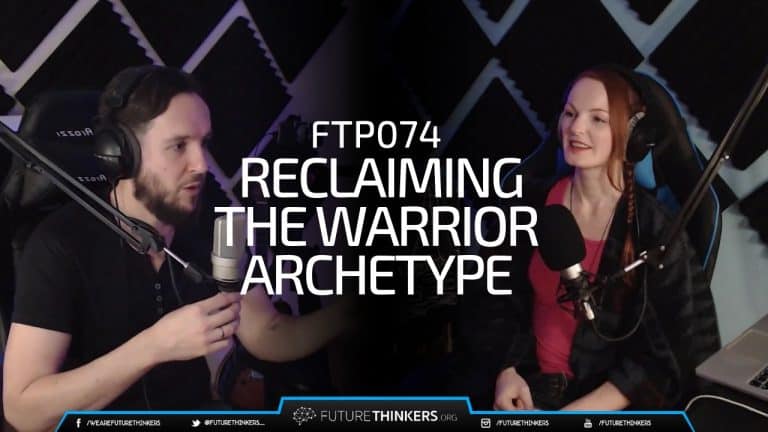Archetypes can be defined as the primordial modes of being, sets of behavior, or energies that we as humans occupy on both biological and psychological levels. Archetypes were largely explored and described by psychiatrist Carl Jung.
The second Jungian masculine archetype we are covering in this series is The Warrior. It is the most misunderstood archetype in our culture, often connected with unnecessary violence and tyranny. However, in its full expression, The Warrior is needed in order to bring about productive change in the world. We discuss how this archetype manifests in its childhood and mature versions, and talk about its different variations like The Hero, The Grandstander Bully, The Coward, The Sadist and The Masochist.
“A man who is obsessed with his success has already lost.”
In This Episode Of Future Thinkers:
- Characteristics of The Warrior archetype
- Aggression as the positive trait — making effort to succeed, being assertive, and having initiative
- Shadow version of The Warrior in childhood — The Grandstander Bully
- How The Hero manifests in childhood and adulthood
- The suppressed aggression in The Nice Guy
- Why today’s society sees no need for aggression and actively discourages it
- The Warrior as a force of creative destruction
- The highest traits of this archetype — discipline, focus, open awareness, adaptability, humility
- The Sadist and The Masochist as dysfunctional polarities of The Warrior
- Examples of warriors from popular films and culture
- How to integrate this archetype in a pro-social and productive way
Mentions and Resources:
- Rehabilitating Our Inner Villains, an article by Mike Gilliland
- The Archetype of the Warrior: How Films Help Empower Us All, video
- The Four Archetypes of the Mature Masculine: The Warrior, an article by Brett & Kate McKay
- 127 Hours movie
- The Bourne Identity movie
- The Wolf Of Wall Street movie
- Fight Club movie
- Hacksaw Ridge movie
“There is an idea that aggression in unnecessary. In this age of having such a powerful Western structure, all your limits are well defined and not always for the good of you and the society. The only thing that could change that is pure will, the willingness to stand up and fight. Power structures don’t move willingly, they move with enough force and aggression from enough people.” – Mike Gilliland
Book Recommendations:
- King, Warrior, Magician, Lover: Rediscovering the Archetypes of the Mature Masculine by Robert Moore and Doug Gillette
- Modern Man in Search of a Soul by Carl Jung
- Extreme Ownership: How U.S. Navy SEALs Lead and Win by Jocko Willink
- The Power of Habit: Why We Do What We Do in Life and Business by Charles Duhigg
More From Future Thinkers:
This Episode is Sponsored By:


